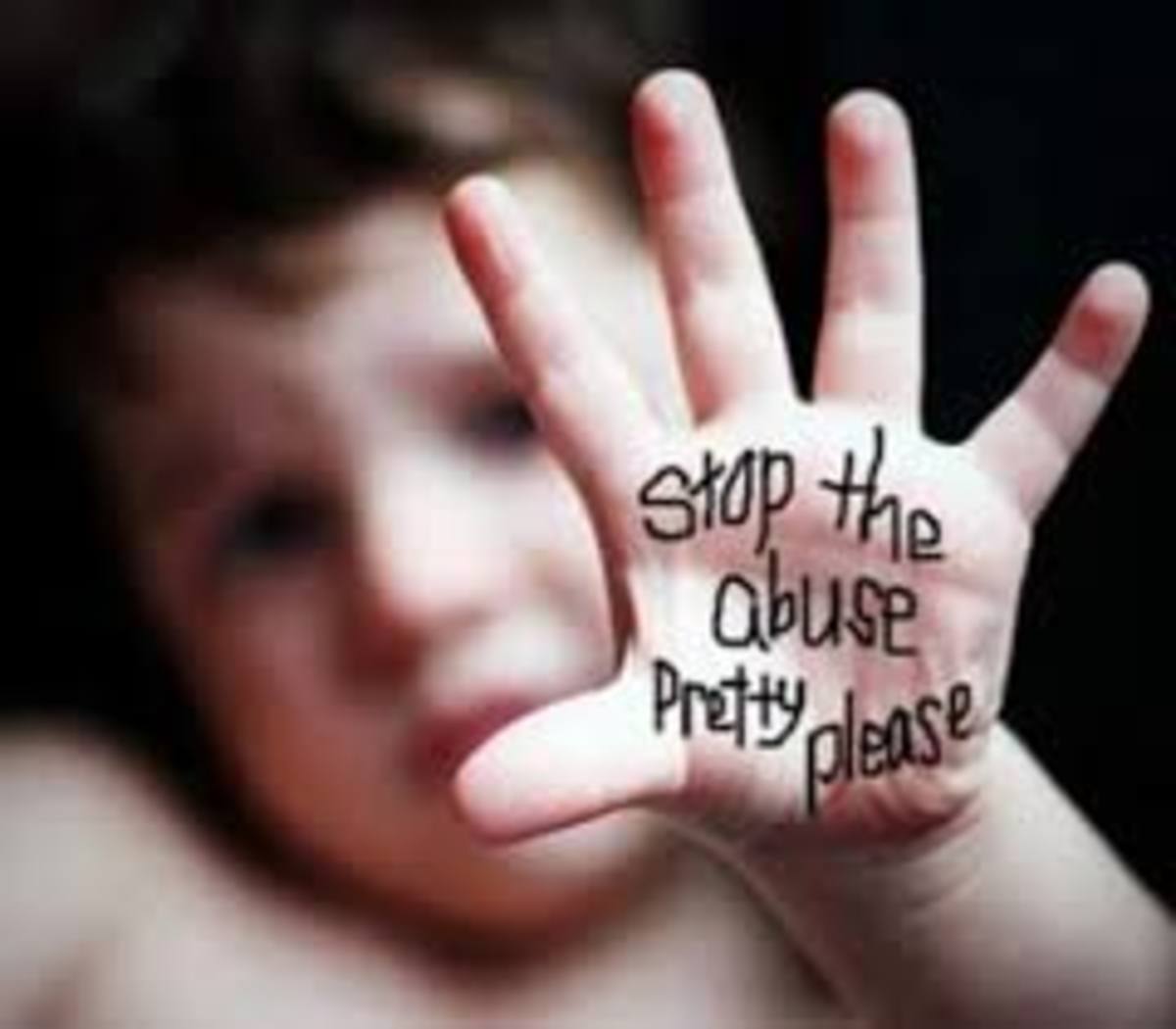What Were Your Parents" Perception of You As A Child And How This Perception Affect You As An Adult, Part III, Last Part

A Child Usually Fulfills His/Her Parents' Image of Him/Her
There are parents who are quite critical and exacting of their children no matter how hard the latter tries to please them. No matter how seemingly good and perfect the child is, it is never enough for these parents. They insist that there is always something that needs to be improved! For example, if a child came in second place in baseball, this parent states that if he/she tried harder, he/she would be the winner! So in these parents' eyes, the child missed the mark! This is the parent who staunchly believes that if a person is not number one, there is no use in undertaking the task at hand! In other words, if one is not numero uno then he/she is a loser period!
The concept of their child just doing a task is totally foreign to such parents. Their adage is to be as perfect and/or near perfect the first time a task is done. What they fail to acknowledge that proficiency and perfection comes from repeated practice. Hardly anyone is perfect the first time he/she undertakes a task. Some parents expect their child to be perfect and/or near perfect in a task that he/she undertakes for the first time. If not, the child is considered to be quite inproficient to say the least. It is all or nothing with such parents.
There are some parents who would do almost anything to get their children to get on the ball so to speak. Some even resort to the act of favoritism and scapegoating if there is more than one child in the family. These parents contend that by comparing the child who is errant to the more favored child, the former child will see the proverbial light. If that does not work, still other parents use the art of scapegoating the errant child to have him/her wisen up and to be on the agenda. The child's individual and unique characteristics are devalued by the parent who wants him/her to be more acceptable/favorable in the their eyes.
Such parents are quite fond of using the art of comparison. This art of comparison does not even has been a comparison between siblings in a family. This comparison can be between cousins and nonrelated children who the parents consider to have more positive characteristics. For example, a mother may compare her so-called seemingly less attractive and lanky daughter to a classmate who is more beautiful and poised. The mother may even resort to calling her daughter pejorative names regarding her appearance and start to criticize her in the hopes of making her gain more self-confidence!
What such negative parenting does is destroy and undermine children's confidence. They believe that since their parents are constantly relaying to them that they are quite insignificant, they start to believe it since it is coming from people they are supposed to love and trust. Furthermore, children who are routinely exposed to less than positive parenting do not achieve as much they could. Some children become depressed, believing that they have no worth and value as people.
Many such children start to believe that other people are "better" than they are- smarter, more attractive, more popular, and superior. Because they develop such low self-esteem, they are more subject to be influenced by stronger people. They do not have the confidence to assert themselves in perilous situations for example, standing up to school bullies. Studies authenticate that bullies target children who possess little self-esteem and are non-assertive because they know that such children cannot defend themselves.
There is even a more ominous note to this scenario. When children are constant denigrated and do not receive positive validation from parents, they look to other people for the positive validation. Some of those people may not be so positive and often have ulterior and more sinister interests at heart for our precious children.
Many parents do not and/or refuse to realize the negative impact of their words and disciplinary measures on their children. Many children do not perform up to their potential because of their parents' carping words such as calling them "stupid", "retard", "moron", "idiot", and/or other disrespectful words when they make a mistake. They program what their parents say to them so they have an inner critic which often lasts into adulthood. So each time, they make a mistake, they hear their parents' stinging words which often immobilizes them from proceeding forward in their lives.
There are parents who severely critique their children for the most minute errors and they portend that their children do not have any initiative and aggresiveness. What these parents fail to comprehend that constant criticism makes people, particularly children, risk aversive for fear that they are going to fail and makes them choose the safer road. In order to develop and possess initiative, one must be willing to try and take risks in life even though one fails at times. If they want their children to develop initiative, lay off the criticism and just assess the situation as to how certain can be improved and enhanced in a positive, not negative way.
There are those who are quite the opposite. They become the overachievers to disprove any negative opinions that their parents have about them. In their estimation, although their parents may believe that they are blemished and flawed, their parents will reconsider who they are because they are going to be overachievers and stars. Their motto is that they will show their parents and the former will rue the day that they utter such negative statements! By becoming overachievers and stars, these children are saying that they are somebodies and the parents had better take notice!
There are still other children who blatantly disregard their parents' verbal abusive critique. They maintain that their parents criticize them because they are actually frustrated with and miserable in their own lives. Children can be quite observant and some are quite prodigiously smart. They know when their parents are unhappy and miserable with their own lifes and decide to project this misery upon them instead of their parents actually improving their own lives. These children know that they have inner self worth. They do not need their parents' permission to validate their self worth so to speak. Either they know this instintively or have outside role models via teachers, relatives, and/or other authority figures who constantly relay this to them.
They believe that they will achieve and be whom they were meant to be despite their parents' negativity. They further know that their parents are negative towards them based upon the latters' inseurities and this negativity is not a reflection upon the former. They portend that they do not need their parents' approval to be whole and sufficient people unto themselves. They are quite alright, thank you very much. They figure that if their parents are always displeased with them, then that is their parents' problem, not theirs. So begone to the parents is the latters' attitude as they have worlds to conquer and lives to live.
To summarize, many people are unduly influenced by their parents' perception of them for good or bad. There are parents who believe in instilling positivity through reinforcement and confidence building in their children. They believe that just because a child makes errors, it does not diminish who their child actually is. They love and encourage their child regardless. Children raised in such supportive homes develop the self-confidence to survive, succeed, and withstand all the negatives of life.
Then there are parents are less than positive towards their children. They have the belief that their children must be perfect and/or as near perfect as possible. These parents portend that it is all or nothing regarding their child. In other words, if their child misses the mark, he/she is less than adequate. Children raised in such an environment learn that they are inept and incompetent. They also learn that they are quite insufficient as people. They learn to be risk aversive because it is the safest route to take.
Other children become overachievers to show their parents that they are not as incompetent as their parents might think. Quite a few disregard their parents' negativity and concentrate on proceeding with their lives, knowing innately that they are worthy people. A parents' perception can either enhance or be detrimental to a child's sense of self and it is about time that parents realize that and act accordingly.
© 2012 Grace Marguerite Williams








